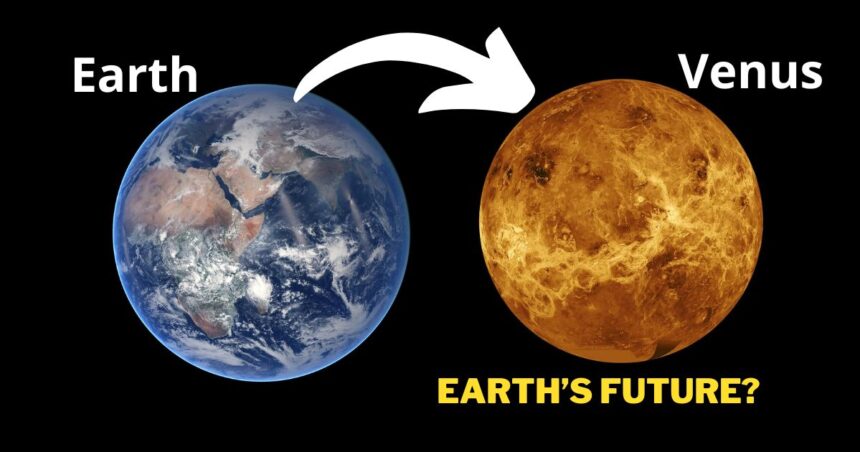Scientists are raising an alarm about climate change by looking at Venus, Earth’s “evil twin.” This nearby planet could hold crucial lessons for us about the dangers of runaway greenhouse gases.
Venus is often called Earth’s “evil twin” because it is similar in size and composition but has a very different climate. Venus’s atmosphere is thick with carbon dioxide, creating a runaway greenhouse effect that makes it the hottest planet in our solar system, with surface temperatures reaching 450°C (842°F). This extreme environment is a stark warning of what could happen if Earth’s climate continues to warm unchecked.
The similarities between Earth and Venus are striking. Both planets are rocky and roughly the same size. However, Venus’s atmosphere is about 96% carbon dioxide, compared to Earth’s 0.04%. This difference has led to Venus’s extreme temperatures and crushing atmospheric pressure, which is 90 times higher than Earth’s.
Scientists believe that Venus was once more Earth-like, with oceans and a climate that could have supported life. However, a runaway greenhouse effect turned it into the hellish world we see today. This transformation happened over millions of years, but it serves as a warning of what could happen if Earth’s climate continues to change rapidly.
The study of Venus’s climate is helping scientists understand the potential consequences of high levels of greenhouse gases. By comparing Earth and Venus, researchers can see how different levels of carbon dioxide affect planetary climates. This information is crucial for predicting how Earth’s climate might change in the future and for developing strategies to mitigate those changes.
One of the key lessons from Venus is the importance of reducing carbon dioxide emissions. Venus’s thick atmosphere is a result of billions of years of volcanic activity and the lack of a carbon cycle to remove carbon dioxide from the atmosphere. On Earth, plants and oceans play a crucial role in absorbing carbon dioxide, but human activities are overwhelming these natural processes.
The study of Venus also highlights the need for international cooperation in addressing climate change. Just as Venus’s climate was altered by natural processes over millions of years, Earth’s climate is being affected by human activities on a much shorter timescale. To prevent a Venus-like fate, countries must work together to reduce greenhouse gas emissions and develop sustainable energy sources.





